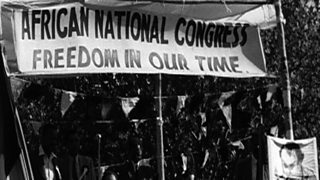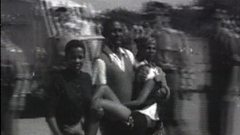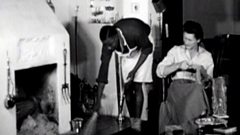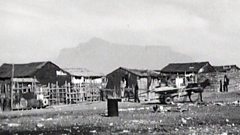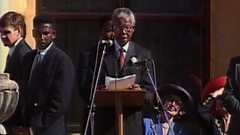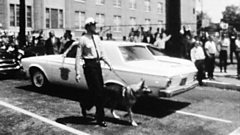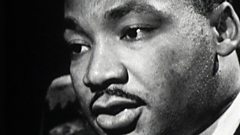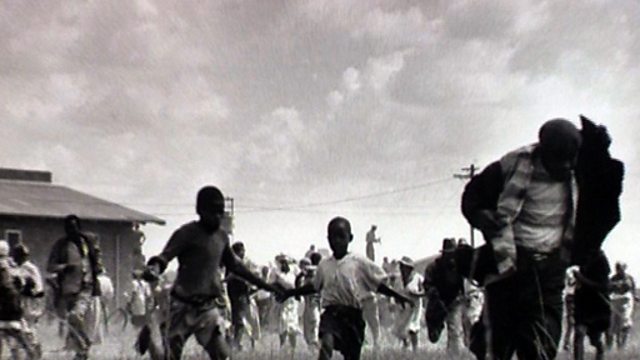
Massacre at Sharpeville and its aftermath, South Africa, 1960
A very powerful and moving series of descriptions of how non-violent methods of civil disobedience were used to protest against the passbooks. Africans destroyed their documents and then went to police stations to be arrested.
The almost joyful process of protest, accompanied by singing, is contrasted with the violent and brutal reaction of the police. There is a range of witness statements, including Africans and white South Africans.
This is followed by some retrospective views, including those of Nelson Mandela, on their reactions to the events at Sharpeville. The final witness makes the connection between Sharpeville and the switch from non-violent to more militant methods.
Footage is taken from, 'Sharpeville: A Model Township', 17 March 1990, and, 'People's Century', 20 October 1996.
Duration:
This clip is from
More clips from Apartheid, South Africa
-
![]()
Reactions of white South Africans to Sharpeville
Duration: 03:20
-
![]()
Life as a maid in apartheid, South Africa
Duration: 00:48
-
![]()
Life in the South African townships
Duration: 02:54
-
![]()
Mandela becomes President of South Africa
Duration: 00:35
More clips from Witness
-
![]()
Race riots in Birmingham, Alabama, 1963—Civil Rights, USA
Duration: 03:39
-
![]()
Martin Luther King on his childhood—Civil Rights, USA
Duration: 01:35
